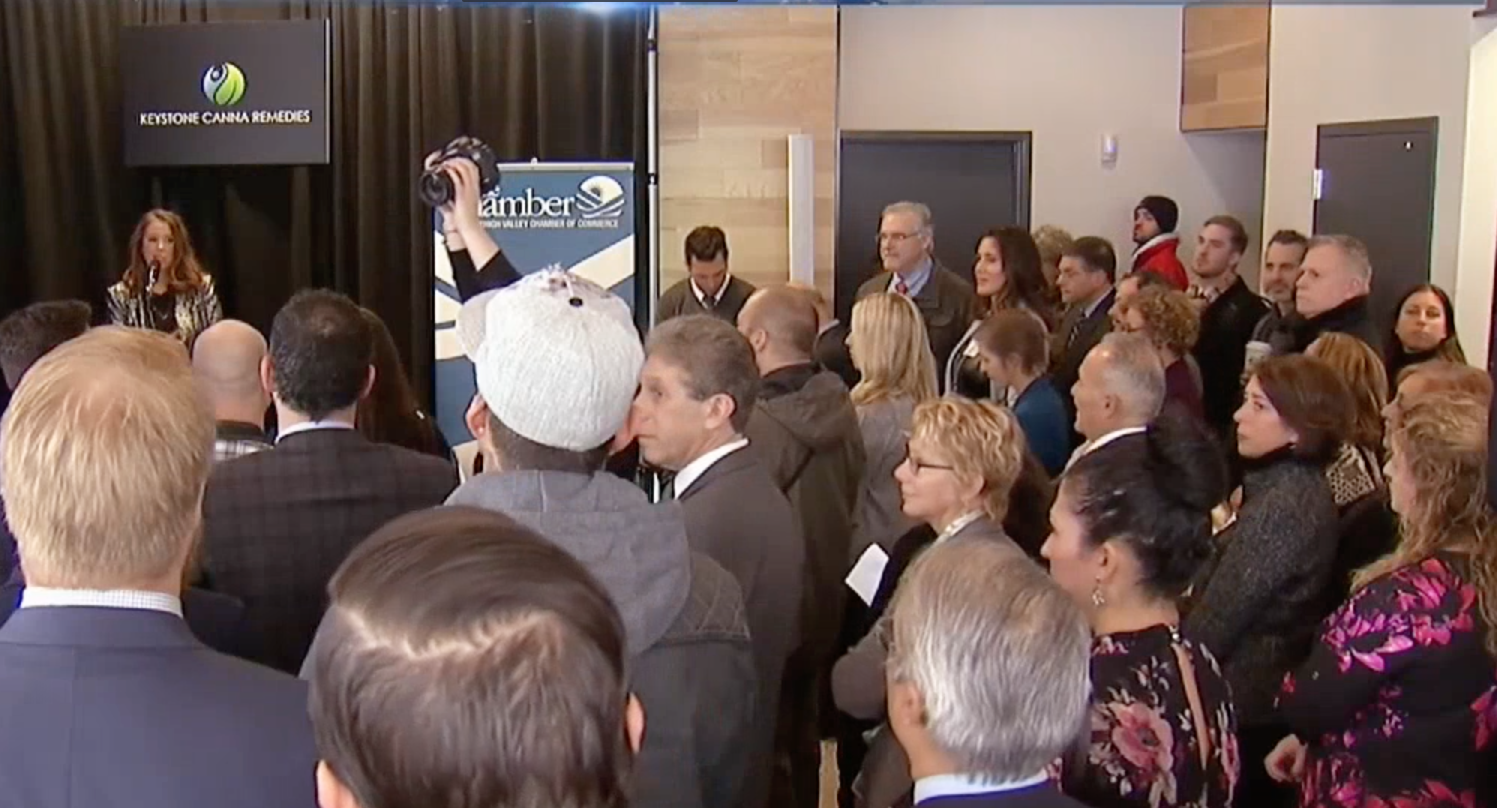Pennsylvania medical cannabis patients are so close to legal weed that they can smell it — almost. With approved cannabis products not available until next month, Pennsylvania’s first approved dispensary welcomed registered patients and the members of the general public for an official grand opening, offering tours the state’s first legal weed facility, consultations with cannabis pharmacists, and educational workshops.
According to Philadelphia’s NBC10 affiliate, Keystone Canna Remedies, a nondescript beige building in suburban Bethlehem, PA, opened their doors for the first time Wednesday morning, cutting the ceremonial ribbon on the Keystone State’s long anticipated medical cannabis program, even before licensed growers and producers are ready to put product on store shelves.
“Welcome to the 21st century,” Tony Iannelli, president of the Bethlehem’s local Greater Lehigh Valley Chamber of Commerce, told the waiting crowd at Wednesday’s opening.
Nearly two years since Governor Tom Wolf signed medical marijuana legislation into law, Pennsylvania’s legal cannabis industry is finally rolling, with more than 100 doctors already certifying patients and businesses like Keystone Canna Remedies ready to welcome them.
“Pennsylvania and the Department of Health has been doing it right,” Victor Guadagnino Jr., founder of Keystone Canna Remedies told NBC10. “The state is setting the standard for how other states should implement medical marijuana programs.”
A middle ground between the West Coast’s more progressive medical programs and a number of restrictive, CBD-only initiatives, Pennsylvania’s medical marijuana program will be open to residents suffering from 17 medical conditions, including cancer, epilepsy and PTSD. While traditional cannabis flowers and edibles will be banned, a number of in-state producers will supply both THC and CBD-rich vaporizers, tinctures, oils, and topicals.
